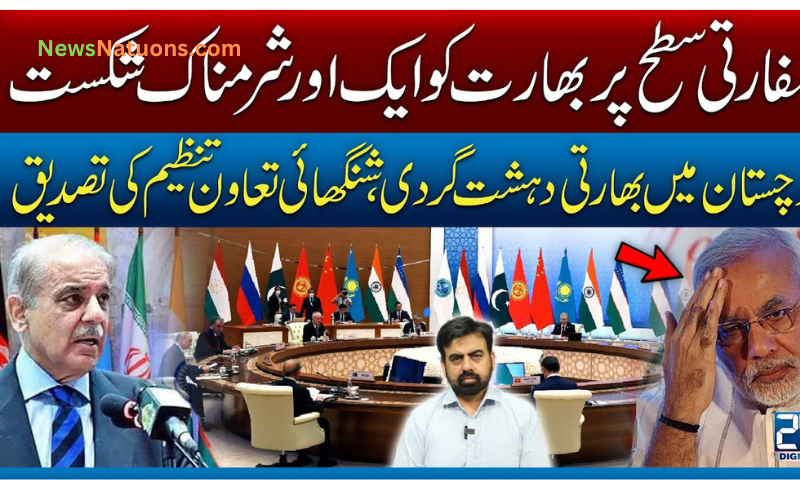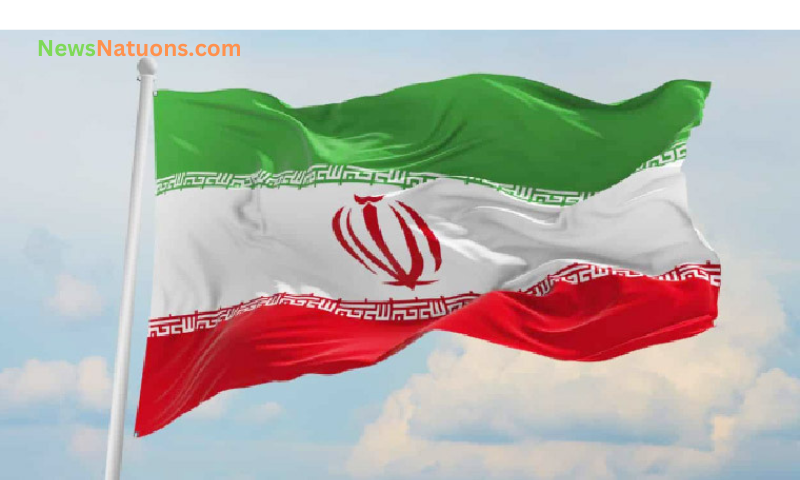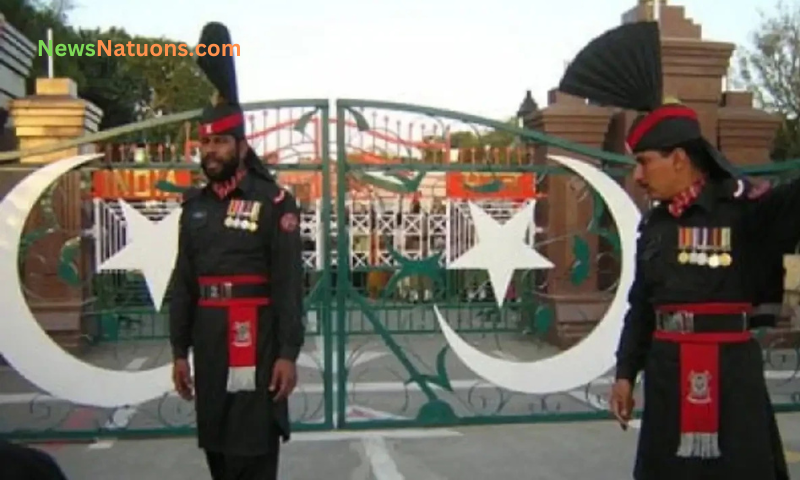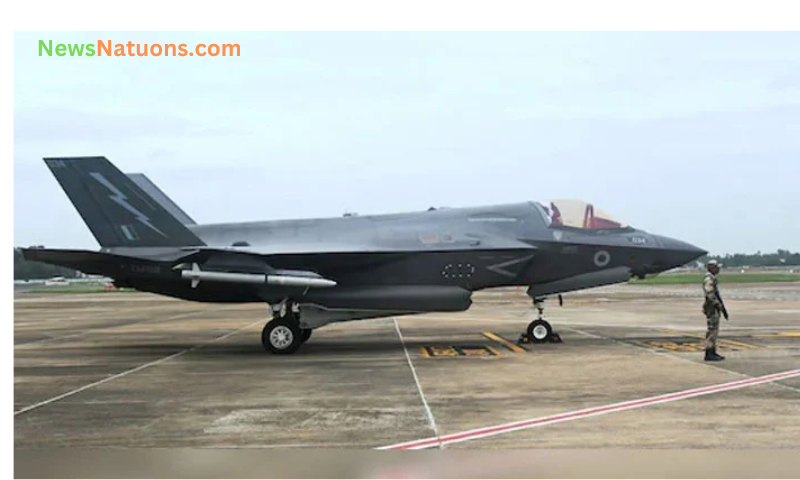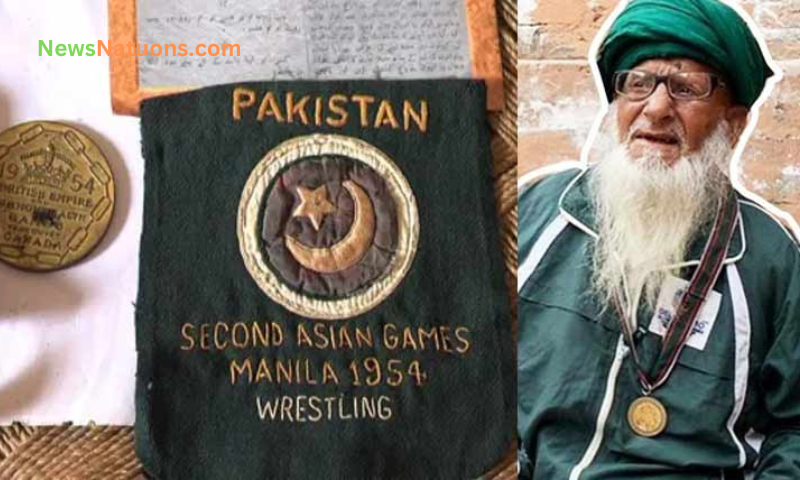On June 26, 2025, the Shanghai Cooperation Organisation (SCO) Defence Ministers’ meeting in Beijing delivered a significant diplomatic blow to India, as the joint statement condemned terrorism in Pakistan’s Balochistan province while omitting any reference to the Pahalgam terror attack in Indian-administered Kashmir. Reported by 24 News HD and amplified through posts on X by users like @wajih_sani and @ShamaJunejo, the statement was signed by all SCO members except India, which refused to endorse it. This development, described as a “shameful defeat” for India by 24 Digital, has been interpreted as a rejection of India’s narrative linking Pakistan to the Pahalgam attack, while highlighting allegations of Indian involvement in Balochistan’s unrest. The outcome underscores the complex geopolitical dynamics within the SCO and the challenges India faces in advancing its regional security agenda.
Context of the SCO Joint Statement
The SCO, comprising China, Russia, Pakistan, and several Central Asian states, issued a joint statement that explicitly condemned terrorism in Balochistan, notably referencing the Jaffar Express train attack, as noted by @TheDailyCPEC on X. This marked a significant moment for Pakistan, which has long accused India of sponsoring insurgent activities in Balochistan, a claim India denies. 24 News HD (June 26, 2025) reported that the statement’s omission of the April 2025 Pahalgam attack, which killed 26 people, was a point of contention for India. Indian Defence Minister Rajnath Singh, attending the meeting, refused to sign the document, citing its failure to address India’s concerns about cross-border terrorism from Pakistan. Posts on X by @sheryar107 and @rizwan_media celebrated this as a diplomatic victory for Pakistan, emphasizing India’s isolation on the regional stage.
India’s Isolation and Pakistan’s Diplomatic Win
India’s refusal to sign the SCO statement has been widely discussed as a moment of diplomatic isolation. According to BBC Urdu (June 27, 2025), the consensus among SCO members to focus on Balochistan, while ignoring India’s demand to include Pahalgam, was seen as a rejection of India’s narrative that Pakistan supports terrorism in Kashmir. Posts on X by @omar_quraishi and @BhavikaKapoor5 highlighted India’s frustration, with the latter criticizing the Modi government’s foreign policy as “disastrous.” Pakistan, conversely, leveraged the platform to reinforce its stance, presenting evidence of alleged Indian-backed terrorism in Balochistan, as noted by @Al33mK. The statement’s endorsement by China, a key SCO member, further strengthened Pakistan’s position, with Express News (June 27, 2025) framing it as a rare instance of regional powers aligning with Islamabad over New Delhi.
Background of Balochistan and Pahalgam Issues
Balochistan, Pakistan’s largest province, has been a hotspot of separatist insurgency, with groups like the Balochistan Liberation Army (BLA) targeting infrastructure and security forces. Pakistan has repeatedly accused India of funding such groups, a charge India dismisses as baseless. The Jaffar Express attack, mentioned in the SCO statement, killed several civilians and was attributed to separatist militants, per Dawn News (June 2025). Conversely, the Pahalgam attack in April 2025, which India blames on Pakistan-based militants, has been a focal point of India’s anti-terrorism narrative. The Hindu (June 27, 2025) noted that India’s push to include Pahalgam in the SCO statement was rebuffed, as other members found insufficient evidence to support India’s claims, contrasting with Pakistan’s documentation on Balochistan.
Geopolitical Dynamics at Play
The SCO’s decision reflects broader geopolitical alignments, particularly the influence of China and Russia. China, which hosted the summit, has significant stakes in Balochistan through the China-Pakistan Economic Corridor (CPEC), a flagship Belt and Road Initiative project. Express Tribune (June 28, 2025) reported that China’s support for the statement aligns with its interest in securing CPEC projects, often targeted by Baloch insurgents. Russia’s acquiescence, despite its historically balanced ties with India, further isolated New Delhi, as noted by @sheryar107 on X. The SCO’s focus on Balochistan, while sidelining Pahalgam, suggests a strategic alignment favoring Pakistan’s narrative, challenging India’s regional influence and highlighting the complexities of multilateral forums where competing interests collide.
Public and Media Reactions
The SCO statement triggered polarized reactions. In Pakistan, media outlets like 24 News HD and ARY News (June 26, 2025) hailed it as a diplomatic triumph, with headlines emphasizing India’s “humiliation.” Social media posts by @rizwan_media and @wajih_sani echoed this sentiment, framing the outcome as a validation of Pakistan’s stance on Indian interference. In India, however, the response was one of outrage and frustration. The Times of India (June 27, 2025) criticized the SCO for ignoring the Pahalgam attack, accusing Pakistan of manipulating the narrative. Posts on X by Indian users, such as @DeeptiSachdeva_, lamented the international community’s perceived bias, though Pakistani users like @Al33mK countered that India’s lack of evidence weakened its case. The polarized discourse underscores the deep-seated mistrust between the two nations.
Implications for India-Pakistan Relations
The SCO statement has further strained India-Pakistan relations, already tense following the Pahalgam attack. India’s refusal to sign the document, as reported by BBC Urdu, signals its unwillingness to compromise on its narrative of Pakistan-sponsored terrorism. Conversely, Pakistan’s success in securing SCO support for its Balochistan concerns, as highlighted by Express News (June 27, 2025), strengthens its diplomatic leverage. The incident risks escalating rhetorical exchanges, with potential implications for regional stability. Dawn News (June 28, 2025) noted that such diplomatic setbacks could prompt India to adopt a harder stance in future multilateral engagements, further complicating dialogue with Pakistan.
Challenges of Multilateral Diplomacy
The SCO episode highlights the challenges of navigating multilateral forums amid bilateral rivalries. India’s isolation in Beijing reflects the difficulty of advancing its security agenda in a platform dominated by China and Russia, both of which maintain strategic ties with Pakistan. The Hindu (June 27, 2025) argued that India’s focus on bilateral issues like Pahalgam may have misaligned with the SCO’s broader regional security framework, which prioritizes consensus. Posts on X by @BhavikaKapoor5 criticized India’s foreign policy for failing to counter Pakistan’s narrative effectively. The outcome underscores the need for India to recalibrate its approach to multilateral diplomacy, balancing national interests with regional cooperation.
Broader Regional and Global Context
The SCO statement comes at a time of heightened regional tensions, with Balochistan’s security challenges tied to broader geopolitical rivalries. China’s backing of Pakistan aligns with its strategic interests in countering India’s influence, as noted by Express Tribune (June 28, 2025). The omission of Pahalgam also reflects skepticism among SCO members about India’s claims, possibly influenced by Pakistan’s diplomatic efforts, as suggested by @ShamaJunejo on X. Globally, the incident highlights the difficulty of addressing terrorism in politically charged contexts, where evidence and narratives are contested. 24 News HD emphasized that the SCO’s stance could embolden Pakistan to push for international scrutiny of India’s alleged role in regional unrest, potentially reshaping regional alliances.
Future Prospects for SCO and Regional Cooperation
The SCO’s focus on Balochistan over Pahalgam sets a precedent for how terrorism is addressed in regional forums. For India, the setback may prompt a reassessment of its engagement with the SCO, particularly as it seeks to counterbalance China’s influence. The Times of India (June 27, 2025) suggested that India might prioritize bilateral alliances, such as with the U.S., to advance its anti-terrorism agenda. For Pakistan, the diplomatic win, as celebrated by ARY News, strengthens its position within the SCO but risks further antagonizing India. The incident underscores the need for dialogue to address mutual concerns about terrorism, though entrenched mistrust makes this challenging. As the SCO prepares for its next summit, the fallout from this statement will likely shape future discussions on regional security.
26 جون 2025 کو بیجنگ میں ہونے والے شنگھائی تعاون تنظیم (SCO) وزرائے دفاع کے اجلاس نے انڈیا کو ایک بڑا سفارتی دھچکا دیا، جب مشترکہ بیان میں پاکستان کے صوبہ بلوچستان میں دہشت گردی کی مذمت کی گئی، لیکن بھارتی زیر انتظام کشمیر کے پہلگام دہشت گرد حملے کا کوئی ذکر نہ کیا گیا۔ 24 نیوز ایچ ڈی اور @wajih_sani اور @ShamaJunejo کی ایکس پوسٹس کے ذریعے رپورٹ کیا گیا کہ یہ بیان تمام SCO ممالک نے دستخط کیا سوائے انڈیا کے، جس نے اسے مسترد کر دیا۔ 24 ڈیجیٹل نے اسے انڈیا کی “شرمناک شکست” قرار دیا، جسے انڈیا کی اس داستان کی نفی کے طور پر دیکھا جا رہا ہے کہ پاکستان پہلگام حملے میں ملوث ہے، جبکہ بلوچستان کی بدامنی میں انڈیا کے کردار کے الزامات کو اجاگر کیا گیا۔ یہ نتیجہ SCO کے اندر پیچیدہ جغرافیائی سیاسی حرکیات اور انڈیا کے علاقائی سیکورٹی ایجنڈے کو آگے بڑھانے کے چیلنجز کو واضح کرتا ہے۔
SCO مشترکہ بیان کا تناظر
SCO، جس میں چین، روس، پاکستان، اور کئی وسطی ایشیائی ریاستیں شامل ہیں، نے ایک مشترکہ بیان جاری کیا جس میں بلوچستان میں دہشت گردی کی واضح مذمت کی گئی، خاص طور پر جعفر ایکسپریس ٹرین حملے کا حوالہ دیا گیا، جیسا کہ @TheDailyCPEC نے ایکس پر نوٹ کیا۔ یہ پاکستان کے لیے ایک اہم لمحہ تھا، جو طویل عرصے سے انڈیا پر بلوچستان میں باغی سرگرمیوں کی سرپرستی کا الزام لگاتا رہا ہے، جسے انڈیا مسترد کرتا ہے۔ 24 نیوز ایچ ڈی (26 جون 2025) نے رپورٹ کیا کہ اپریل 2025 کے پہلگام حملے کا ذکر نہ ہونا، جس میں 26 افراد ہلاک ہوئے، انڈیا کے لیے تنازع کا باعث بنا۔ بھارتی وزیر دفاع راجناتھ سنگھ نے دستاویز پر دستخط کرنے سے انکار کر دیا، اس کی وجہ پاکستان سے سرحد پار دہشت گردی کے بارے میں انڈیا کے تحفظات کو نظر انداز کرنا بتایا۔ @sheryar107 اور @rizwan_media کی ایکس پوسٹس نے اسے پاکستان کی سفارتی فتح کے طور پر منایا۔
انڈیا کی تنہائی اور پاکستان کی سفارتی کامیابی
انڈیا کے SCO بیان پر دستخط نہ کرنے کو سفارتی تنہائی کے لمحے کے طور پر بڑے پیمانے پر زیر بحث لایا گیا۔ بی بی سی اردو (27 جون 2025) کے مطابق، SCO ممالک کا بلوچستان پر توجہ مرکوز کرنے اور پہلگام کو نظر انداز کرنے کا اتفاق انڈیا کے اس دعوے کی نفی کے طور پر دیکھا گیا کہ پاکستان کشمیر میں دہشت گردی کی حمایت کرتا ہے۔ @omar_quraishi اور @BhavikaKapoor5 کی ایکس پوسٹس نے انڈیا کی مایوسی کو اجاگر کیا، مؤخر الذکر نے مودی حکومت کی خارجہ پالیسی کو “تباہ کن” قرار دیا۔ پاکستان نے اس پلیٹ فارم کو اپنا موقف مضبوط کرنے کے لیے استعمال کیا، بلوچستان میں مبینہ بھارتی حمایت یافتہ دہشت گردی کے ثبوت پیش کیے، جیسا کہ @Al33mK نے نوٹ کیا۔ ایکسپریس نیوز (27 جون 2025) نے اسے علاقائی طاقتوں کے اسلام آباد کے ساتھ اتحاد کے نادر موقع کے طور پر پیش کیا۔
بلوچستان اور پہلگام مسائل کا پس منظر
بلوچستان، پاکستان کا سب سے بڑا صوبہ، جدوجہدی پسند باغیوں کا گڑھ رہا ہے، جیسے بلوچستان لبریشن آرمی (BLA)، جو بنیادی ڈھانچے اور سیکورٹی فورسز کو نشانہ بناتی ہے۔ پاکستان نے بارہا انڈیا پر ایسی گروہوں کی مالی امداد کا الزام لگایا، جسے انڈیا بے بنیاد قرار دیتا ہے۔ SCO بیان میں ذکر کردہ جعفر ایکسپریس حملہ، جس میں کئی شہری ہلاک ہوئے، جدوجہدی پسندوں سے منسوب کیا گیا، جیسا کہ ڈان نیوز (جون 2025) نے رپورٹ کیا۔ دوسری طرف، اپریل 2025 کا پہلگام حملہ، جسے انڈیا پاکستان پر مبنی عسکریت پسندوں پر الزام دیتا ہے، اس کے دہشت گردی مخالف داستان کا مرکز رہا ہے۔ دی ہندو (27 جون 2025) نے نوٹ کیا کہ SCO بیان میں پہلگام شامل کرنے کی انڈیا کی کوشش ناکام ہوئی، کیونکہ دیگر ممالک نے انڈیا کے دعووں کے لیے ناکافی ثبوت پائے۔
جغرافیائی سیاسی حرکیات
SCO کا فیصلہ وسیع تر جغرافیائی سیاسی صف بندیوں کی عکاسی کرتا ہے، خاص طور پر چین اور روس کا اثر و رسوخ۔ چین، جس نے اجلاس کی میزبانی کی، بلوچستان میں چین-پاکستان اقتصادی راہداری (CPEC) کے ذریعے بڑے مفادات رکھتا ہے۔ ایکسپریس ٹریبیون (28 جون 2025) نے رپورٹ کیا کہ چین کی بیان کی حمایت CPEC منصوبوں کو محفوظ بنانے کے اس کے مفاد سے ہم آہنگ ہے۔ روس کی خاموش رضامندی نے انڈیا کو مزید تنہا کر دیا، جیسا کہ @sheryar107 نے نوٹ کیا۔ بلوچستان پر توجہ اور پہلگام کو نظر انداز کرنا پاکستان کی داستان کو ترجیح دینے والی اسٹریٹجک صف بندی کی تجویز دیتا ہے، جو انڈیا کے علاقائی اثر و رسوخ کو چیلنج کرتا ہے۔
عوامی اور میڈیا ردعمل
SCO بیان نے متضاد ردعمل کو جنم دیا۔ پاکستان میں، 24 نیوز ایچ ڈی اور اے آر وائی نیوز (26 جون 2025) نے اسے سفارتی فتح قرار دیا، سرخیوں میں انڈیا کی “ذلت” پر زور دیا۔ @rizwan_media اور @wajih_sani کی ایکس پوسٹس نے اس جذبات کی بازگشت کی۔ بھارت میں، دی ٹائمز آف انڈیا (27 جون 2025) نے SCO کی پہلگام کو نظر انداز کرنے پر تنقید کی۔ @DeeptiSachdeva_ جیسے بھارتی صارفین نے بین الاقوامی برادری کے تعصب پر افسوس کیا، جبکہ @Al33mK نے انڈیا کے ثبوت کی کمی کو تنقید کا نشانہ بنایا۔ یہ متضاد گفتگو دونوں ممالک کے درمیان گہرے عدم اعتماد کو اجاگر کرتی ہے۔
انڈیا-پاکستان تعلقات کے لیے مضمرات
SCO بیان نے پہلگام حملے کے بعد پہلے سے کشیدہ انڈیا-پاکستان تعلقات کو مزید دباؤ میں ڈال دیا۔ بی بی سی اردو کے مطابق، انڈیا کا دستاویز پر دستخط نہ کرنا اس کے پاکستان کی حمایت یافتہ دہشت گردی کے بیانیے پر سمجھوتہ نہ کرنے کی عکاسی کرتا ہے۔ پاکستان کی SCO حمایت نے اس کی سفارتی قوت کو مضبوط کیا، جیسا کہ ایکسپریس نیوز (27 جون 2025) نے اجاگر کیا۔ اس واقعے سے علاقائی استحکام پر اثرات پڑ سکتے ہیں، جیسا کہ ڈان نیوز (28 جون 2025) نے نوٹ کیا۔
کثیرالجہتی سفارت کاری کے چیلنجز
SCO واقعہ دو طرفہ دشمنیوں کے درمیان کثیرالجہتی فورمز کی پیچیدگیوں کو اجاگر کرتا ہے۔ انڈیا کی بیجنگ میں تنہائی اس کے سیکورٹی ایجنڈے کو آگے بڑھانے کی مشکل کو ظاہر کرتی ہے۔ دی ہندو (27 جون 2025) نے استدلال کیا کہ انڈیا کا پہلگام جیسے دو طرفہ مسائل پر توجہ SCO کے وسیع تر علاقائی سیکورٹی فریم ورک سے میل نہیں کھاتا۔ @BhavikaKapoor5 نے انڈیا کی خارجہ پالیسی کی تنقید کی۔ یہ نتیجہ انڈیا کے لیے کثیرالجہتی سفارت کاری کو دوبارہ ترتیب دینے کی ضرورت کو واضح کرتا ہے۔
وسیع تر علاقائی اور عالمی تناظر
SCO بیان علاقائی تناؤ کے وقت آیا ہے، جہاں بلوچستان کی سیکورٹی چیلنجز جغرافیائی سیاسی دشمنیوں سے جڑے ہیں۔ ایکسپریس ٹریبیون (28 جون 2025) نے نوٹ کیا کہ چین کی پاکستان کی حمایت انڈیا کے اثر و رسوخ کو روکنے کے اسٹریٹجک مفاد سے ہم آہنگ ہے۔ 24 نیوز ایچ ڈی نے زور دیا کہ SCO کا موقف پاکستان کو انڈیا کے مبینہ کردار کی بین الاقوامی جانچ پڑتال کے لیے حوصلہ دے سکتا ہے۔







